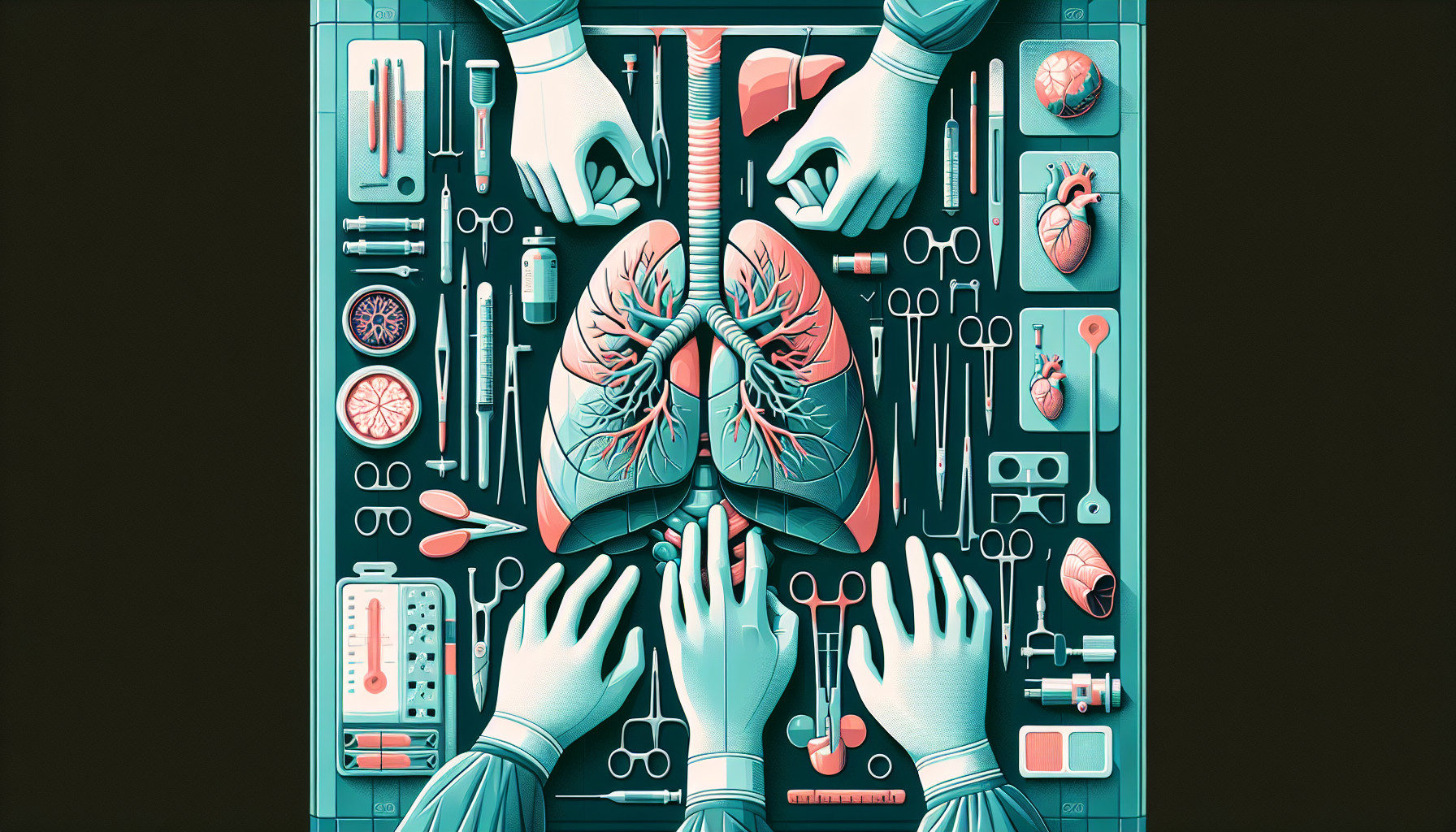Our Summary
This research paper looks at how the size and depth of lung nodules - small growths in the lungs, often detected during a scan - affect the surgical approach for early-stage lung cancer.
The study analyzed data from 385 patients who underwent lung surgery in 2022. The patients had early-stage lung cancer and the nodules were 2 cm or smaller. Three types of surgery were studied - wedge resection (removing a small, wedge-shaped piece of lung), segmentectomy (removing a larger portion of the lung), and lobectomy (removing an entire lobe of the lung).
The researchers found that the size and depth of the nodules influenced the type of surgery performed. In particular, larger and deeper nodules required the removal of more lung tissue to ensure a safe margin (an area of healthy tissue around the cancer that is also removed to make sure no cancer cells are left behind).
For wedge resections, when the nodule was more than 2 cm from the inner edge of the lung, there was a higher proportion of cases where the resection margin was less than 2 cm. This suggests that a distance of 2 cm or less from the inner edge of the nodule to the nearest pleura (the thin tissue that covers the lungs) may be the ideal indication for performing a wedge resection.
This study is important for helping surgeons decide the best surgical approach for early-stage lung cancer based on the size and depth of the lung nodules.
FAQs
- How does the size and depth of lung nodules influence the type of surgery performed for early-stage lung cancer?
- What is the ideal distance from the inner edge of the nodule to the nearest pleura for performing a wedge resection, according to the study?
- How does the study help surgeons in deciding the surgical approach for early-stage lung cancer?
Doctor’s Tip
One helpful tip a doctor might tell a patient about lung resection is to follow post-operative instructions carefully to aid in recovery and prevent complications. This may include taking prescribed medications, avoiding strenuous activities, and attending follow-up appointments. Additionally, quitting smoking and maintaining a healthy lifestyle can help improve lung function and overall recovery after surgery.
Suitable For
Patients who are typically recommended for lung resection are those with early-stage lung cancer and small nodules (2 cm or smaller) that are located close to the inner edge of the lung. The size and depth of the nodules are important factors in determining the type of surgery to be performed, whether it be wedge resection, segmentectomy, or lobectomy. Surgeons need to ensure a safe margin around the cancer to prevent any cancer cells from being left behind, especially in cases of larger and deeper nodules. The study suggests that a distance of 2 cm or less from the inner edge of the nodule to the nearest pleura may be the ideal indication for performing a wedge resection. This research helps guide surgeons in making informed decisions about the surgical approach for lung cancer patients based on the specific characteristics of their nodules.
Timeline
Before lung resection:
- Patient undergoes imaging tests such as CT scans to detect lung nodules.
- Nodules are monitored over time to determine if they are cancerous.
- If nodules are confirmed to be cancerous and are early-stage, surgery may be recommended.
- Surgical team evaluates the size and depth of the nodules to determine the best approach for lung resection.
After lung resection:
- Patient undergoes surgery to remove the affected portion of the lung.
- Recovery period in the hospital, which may include pain management and physical therapy.
- Follow-up appointments with the surgical team to monitor recovery and assess any potential complications.
- Long-term follow-up to monitor for recurrence of cancer and overall lung function.
What to Ask Your Doctor
Some questions a patient should ask their doctor about lung resection include:
- What type of lung resection surgery do you recommend for my specific case?
- How will the size and depth of the lung nodule affect the surgical approach?
- What are the potential risks and benefits of each type of lung resection surgery?
- How will my recovery and quality of life be impacted by the surgery?
- Are there any alternative treatments or approaches to consider?
- What is the expected outcome and prognosis following the surgery?
- How often do you perform lung resection surgeries for early-stage lung cancer?
- Can you explain the process of the surgery and what I can expect during and after the procedure?
- What are the potential complications or side effects of the surgery?
- Are there any specific guidelines or recommendations for post-operative care and follow-up appointments?
Reference
Authors: Tang Z, Ge W, Zhou D, He Z, Xu J, Pan X, Chen L, Wu W. Journal: Zhongguo Fei Ai Za Zhi. 2024 Mar 20;27(3):170-178. doi: 10.3779/j.issn.1009-3419.2024.101.08. PMID: 38590191
